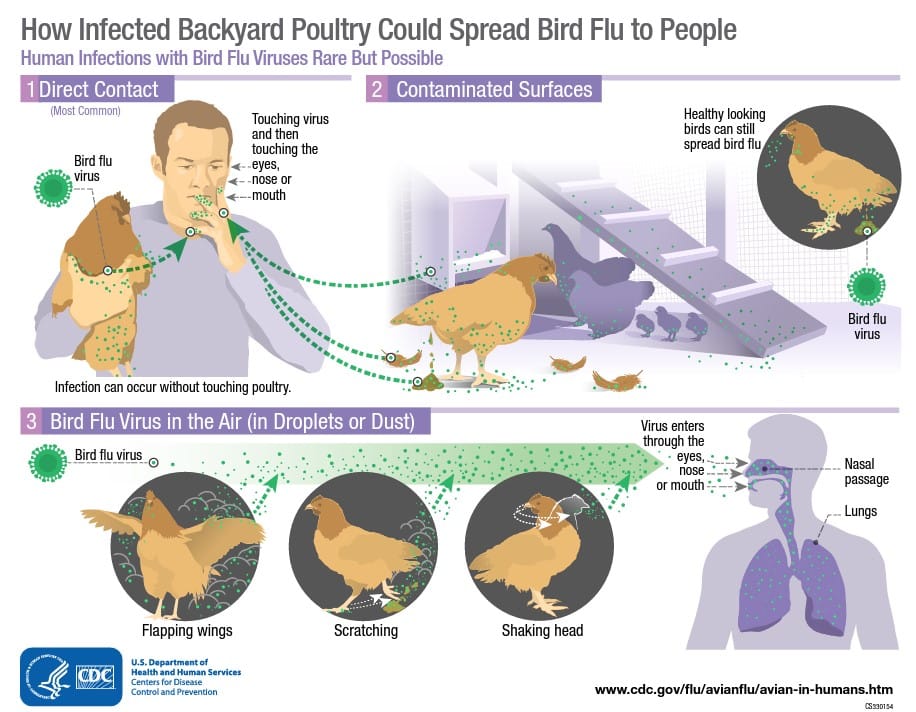A recent study published in the journal ‘Nature’ has raised alarms in the scientific community regarding a single mutation in the avian influenza virus, commonly known as bird flu, that could potentially facilitate its transmission to humans. The research, conducted by a team of virologists at the University of California, San Francisco, examined the genetic makeup of various strains of the H5N1 virus, which has been responsible for sporadic outbreaks in humans. The findings suggest that a specific mutation in the virus’s hemagglutinin protein could enable it to bind more effectively to human cell receptors, thereby increasing the likelihood of infection.
The H5N1 virus is primarily found in birds, but it has occasionally jumped to humans, often resulting in severe illness or death. While human cases remain rare, the study’s authors warn that the potential for the virus to adapt and spread among humans is a significant public health concern. Dr. Sarah Johnson, the lead author of the study, stated, “Our findings underscore the importance of continuous surveillance of avian influenza viruses. A single mutation could be the difference between a virus that remains confined to birds and one that poses a serious threat to human health.”
The World Health Organization (WHO) has also expressed concern over the study’s findings. In a statement, the agency emphasized the need for ongoing monitoring of avian influenza strains and the importance of vaccination for poultry workers and others at risk of exposure. The WHO has previously warned that the H5N1 virus could mutate and become more transmissible among humans, which could lead to a pandemic situation.
Experts recommend that health authorities ramp up their preparedness plans, including stockpiling antiviral medications and enhancing public health messaging to ensure communities are informed about the risks associated with bird flu. The study serves as a reminder of the unpredictable nature of viral evolution and the need for vigilance in preventing zoonotic diseases from spilling over into human populations.
As the situation develops, researchers are calling for increased funding for virology research and public health initiatives aimed at understanding and mitigating the risks posed by avian influenza. The scientific community is on high alert as they work to understand the implications of this mutation and its potential impact on global health.



